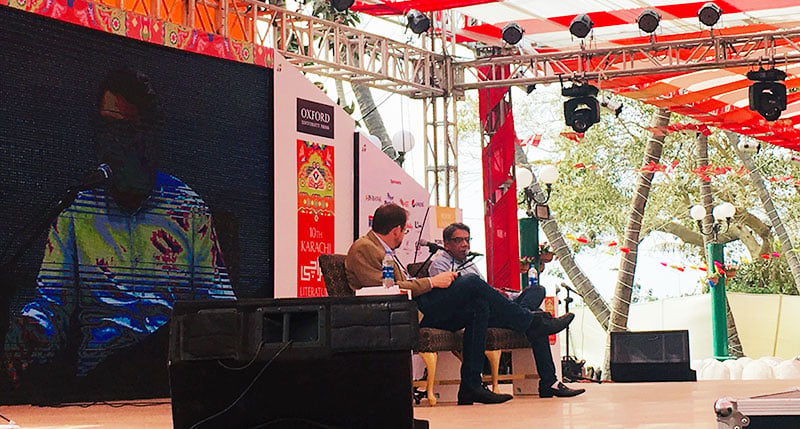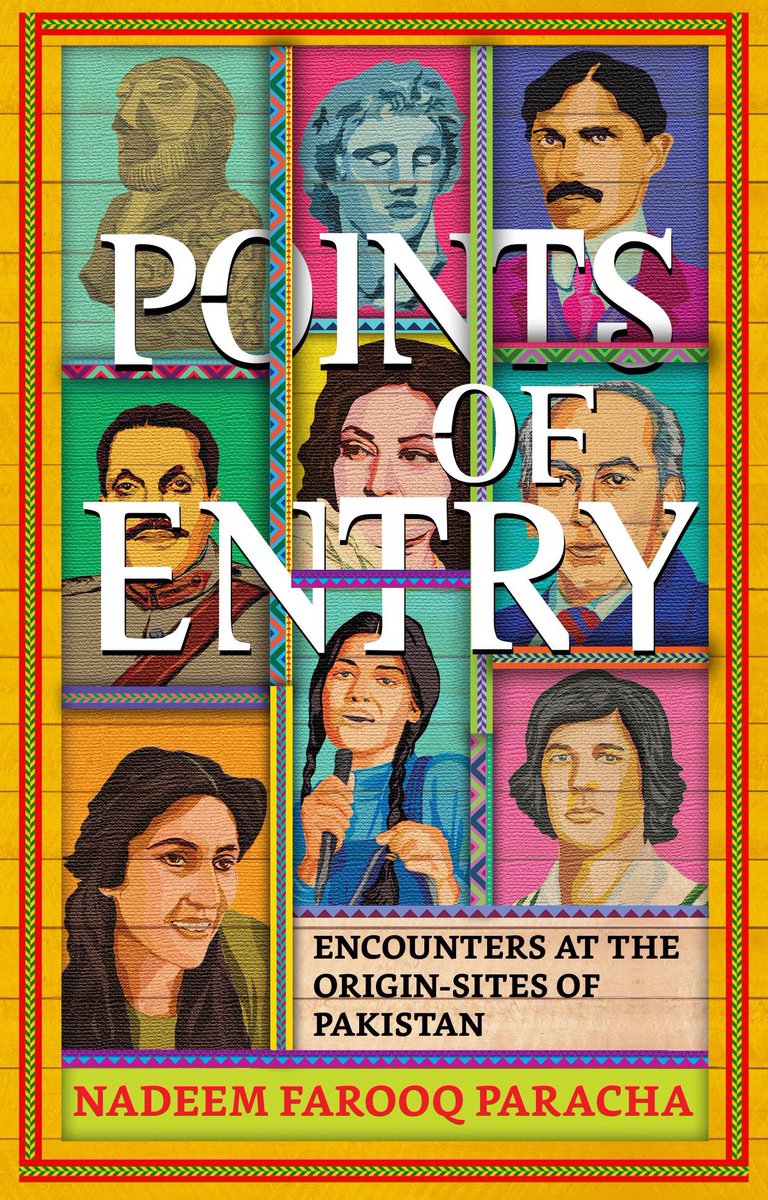What does it mean to be Pakistani?
In times of utter disorder between India and Pakistan, Nadeem Farooq Paracha’s fresh release ‘Points of Entry: Encounters at the Origin-Sites of Pakistan’, comes as a chance for the youth across the border to comprehend the resemblances as well as the notable differences between the two nations.
In times of utter disorder between India and Pakistan, Nadeem Farooq Paracha’s fresh release ‘Points of Entry: Encounters at the Origin-Sites of Pakistan’, comes as a chance for the youth across the border to comprehend the resemblances as well as the notable differences between the two nations.
During his book launch at Karachi Literature Festival’s tenth edition, the acclaimed journalist in a session moderated by Pakistani-American journalist George Fulton, shed light on his latest published work that explores the Pakistani identity in its realest spirit as he demonstrates the diverse components of the country’s culture that paint an absolute picture of what it truly means to be Pakistani.
“In Pakistan since the past many years we’ve tried to build a very singular identity and we have failed. That hasn’t been fair to all kinds of people who live in this country and make this country. This book is about them,” he stated as KLF entered its second day.
The culture critic goes on to define what it means to be a Pakistani: “Pakistan is not just a monolithic person with just one language or one sense of politics, we’re not one dimensional. There are so many differences, we see it in our food, our music which makes us Pakistanis and that is what I wanted to celebrate and get across.”
Speaking about his book coming as a channel between Pakistan and the youth of India that gets a tainted image of their neighboring nation, Paracha states: “They say that young Indians have a very one-dimensional idea about what a Pakistani is. Of course I understood that, not only the Indian media but the Western media as well, they’ve got a very unidimensional idea of Pakistani. This was written for the Indian youth to understand that there are a lot of similarities between us and then are certain differences as well and they need to understand that instead of influencing them through war or through propaganda.”
In the wake of the current crisis that amplified the strains between the two countries, he asserted that an average Pakistani was more worried about not being able to watch Gully Boy on a big screen while the most liberal media across the border had been bought into the narrative getting sold by their government: “This was this hunger in Indian society I realized five six years ago. When they elected Modi with such a huge mandate obviously they were looking for something which was different to what was in India before that.”
-
Security forces gun down 30 terrorists in multiple IBOs in KP: ISPR
-
MQM-P calls for new province in Sindh
-
US report validates Pakistan military edge over India: PM
-
Banned TTP poses serious threat to Pakistan security: UNSC panel
-
CM Afridi clarifies remarks on by-poll after ECP requests army deployment
-
Dubai sees 3.2m Pakistani passengers in 2025 as airport sets new milestone
-
Security forces kill 23 Indian proxy terrorists in KP's Kurram
-
Pakistan to construct island to boost oil exploration: report













